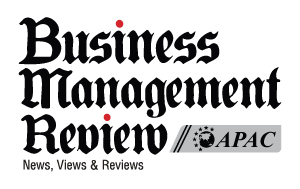BUSINESSMANAGEMENTREVIEW.COMDECEMBER 202419Nevertheless, compliance transcends mere legal adherence; it assumes a pivotal role as an integral component of the broader corporate strategy.THE STRATEGIC ROLE OF COMPLIANCE1. Enhanced Reputation and TrustCompliance plays a pivotal role in building and maintaining a healthcare company's reputation and trustworthiness. Patients, regulators, and investors alike value organizations that prioritize compliance. A strong compliance record signals to stakeholders that the company values ethical conduct and patient well-being, fostering trust and credibility.2. Risk MitigationHealthcare companies face a wide array of risks, ranging from data breaches to medical malpractice. Compliance measures help identify and proactively mitigate these risks. Through the implementation of robust compliance programs, companies can reduce the likelihood of legal disputes, fines, and costly lawsuits.3. Operational EfficiencyCompliance is not solely about adhering to rules; it also involves streamlining processes and operations. Compliance efforts often lead to more efficient and organized workflows, which can translate into cost savings and improved patient care.4. Market Access and ExpansionMany healthcare companies aspire to expand their operations globally. Compliance with international regulations facilitates market access and expansion. Companies that demonstrate a commitment to compliance are more likely to gain regulatory approvals and establish partnerships in new markets.5. Data Security and PrivacyIn an era of digitized healthcare, data security and privacy are paramount. Compliance with data protection regulations ensures the safeguarding of patients' sensitive information. This not only prevents data breaches but also enhances patient confidence in the handling of their data.6. Ethical LeadershipCompliance fosters a culture of ethical leadership within healthcare organizations. It encourages employees to make ethical decisions and report misconduct. Ethical leadership is particularly crucial in a sector where patient well-being is of the utmost importance.CHALLENGES IN HEALTHCARE COMPLIANCEWhile the strategic importance of compliance in healthcare is evident, it is accompanied by a set of challenges:1. Complexity of RegulationsThe healthcare regulatory landscape is intricate and continuously evolving. Companies must allocate significant to remain current with regulatory changes and ensure ongoing compliance.2. Resource ConstraintsCompliance efforts demand investments in terms of time, financial resources, and expertise. Smaller healthcare companies may encounter difficulties in allocating adequate resources to their compliance initiatives, potentially exposing themselves to risks.3. Resistance to ChangeThe implementation of compliance measures can face resistance from employees who may perceive them as cumbersome or restrictive. Overcoming this resistance requires effective communication and the cultivation of a culture of compliance within the organization.4. Data Security ConcernsWith healthcare companies increasingly relying on technology, the task of safeguarding patient data becomes more complex. Ensuring compliance with data protection regulations is an ongoing effort that requires unwavering vigilance.HEALTHCARE COMPLIANCE IN PRACTICE: MERZ AESTHETICS® LATAMThe implementation of a robust regional compliance policy at Merz Aesthetics® LATAM was intensified from 2021. The first step involved the establishment of a multidisciplinary Regional Compliance Committee, followed by the launch of the Regional Compliance Program, which delineated roles and responsibilities related to compliance within the region, and the formulation of anti-corruption and antitrust policies.These modifications were complemented by a concerted communication initiative, which included the launch of the Legal & Compliance LATAM Portal and the Whistleblower Channel, both accessible to all employees, alongside communication campaigns, and training programs.CONCLUSIONIn the healthcare industry, compliance transcends mere legal obligation; it assumes the status of a strategic imperative. Given the intricate and ever-evolving regulatory landscape, a proactive approach to compliance is essential, with organizations actively integrating it into their corporate strategies. Embracing compliance as a strategic asset can yield benefits such as reputation enhancement, risk mitigation, improved operational efficiency, and opportunities for expansion into new markets. Despite the challenges, healthcare companies that prioritize compliance will find themselves better positioned to thrive in this highly regulated and competitive sector, ultimately serving the best interests of patients and stakeholders alike. REGULATIONS ARE METICULOUSLY CRAFTED TO ENSURE PATIENT SAFETY, PROTECT DATA PRIVACY, AND UPHOLD THE INTEGRITY OF MEDICAL SERVICES
< Page 9 | Page 11 >
< Page 9 | Page 11 >


